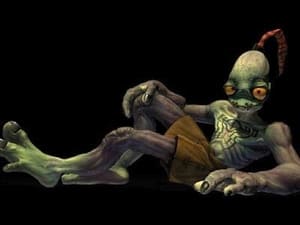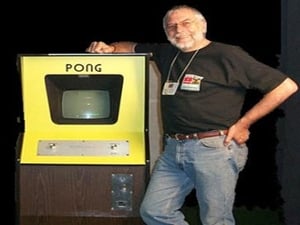Icons Episode Rating Graph
May 2002 - Jun 2007

May 2002 - Jun 2007
4.8

| E1 | E2 | E3 | E4 | E5 | E6 | E7 | E8 | E9 | E10 | E11 | E12 | E13 | E14 | E15 | E16 | E17 | E18 | E19 | E20 | E21 | E22 | |
|---|---|---|---|---|---|---|---|---|---|---|---|---|---|---|---|---|---|---|---|---|---|---|
| S1 | ||||||||||||||||||||||
| S2 | ||||||||||||||||||||||
| S3 | ||||||||||||||||||||||
| S4 | ||||||||||||||||||||||
| S5 |
Browse episode ratings trends for Icons. Simply click on the interactive rating graph to explore the best and worst of Icons's 89 episodes.
S4 Ep10
10.0
4th Dec 2005
Icons delves deep into the history of the NES, the console that changed the world. From its beginning in Japan over 150 years ago, through the boom years of the 1980s and 1990s to its present place as one of the most recognizable names in gaming, Nintendo has always been about innovation and visionary gameplay, but nothing they've created was more visionary than the Nintendo Entertainment System. While gamers know the NES as pure fun, the story behind the game is pure drama, from the incredibly risky launch of the NES in America to Nintendo's sometimes contentious relationship with game developers. Videogame luminaries featured include Don James, the Executive Vice President of Operations for Nintendo of America and legendary game designer (and creator of Mario) Shigeru Miyamoto.
S4 Ep9
10.0
1st Dec 2005
What goes into creating a next generation console? We'll go behind the scenes and talk with the production team of this exciting new project. Microsoft staffers and first-party developers add their insights on the challenges and expectations regarding Xbox 360--one of the most highly-anticipated launches in games.
S4 Ep8
10.0
31st Oct 2005
George A. Romero was a pivotal figure in the development horror films with his first feature, "Night of the Living Dead" in 1968. We talk with this independent filmmaker about his career and take a look at some of his most memorable work.
S4 Ep7
10.0
8th Sep 2005
Icons digs deep to get the real history of the Sony PlayStation, starting with its beginnings as a parts-maker for Nintendo consoles and the development of a CD-based game for Nintendo. After Sony was double-crossed by Nintendo when they decided to drop Sony for Philips, Ken Kutaragi fought to develop the technology as a 3D game console despite Sony's reputation as a consumer electronics company. However, the company was able to gather the support of Japan's top game developers and publishers and push the PlayStation to the top of the sales charts and changed the way the world saw video games.
S4 Ep6
10.0
9th Jun 2005
Contrary to what you might have been led to believe by fanboys, the father of video gaming is not Shigeru Miyamoto, Will Wright, or even Nolan Bushnell. And it certainly isn't Bill Gates. What you may not know is that the technology that enabled the creation of video games was patented by engineer Ralph Baer in 1968, four years before Pong was ever introduced to gamers worldwide. However, Baer had developed the concept much, much earlier.
S4 Ep5
10.0
12th May 2005
Following the debut of the first Star Wars film in the late 1970's, Star Wars games have become an almost natural extension of the series' plot and experience, feeding the frenzy of fans thirsting for more. Starting with the first arcade game in 1983, fans went nuts for anything based on the series, spawning the first rush of Star Wars games to the home console market. However, it was not until 1991 that LucasFilm Games (now LucasArts) produced their own game based off their most famous series for the Nintendo Entertainment System. They would go on to produce a number of hits including X-Wing, TIE Fighter and Dark Forces II: Jedi Knight, though working with their proprietary content did not guarantee them a good game, as proven by such flops as Masters of Teras Kasi and Star Wars: Rebellion. However, the release of the new Star Wars Trilogy beginning in 1999 would prove to inject new life into the series of games including Jedi Academy, Knights of the Old Republic and the series' first MMO, Star Wars Galaxies.
S4 Ep4
10.0
28th Apr 2005
Though he's been an influential force in games for over a decade, Tim Schafer hasn't been heard from much in recent years because he's been hard at work forming his own company and working hard on Psychonauts for the past three years. However, Schafer didn't start out at the top but rather worked his way up at LucasArts on projects such as Secret of Monkey Island, Day of the Tentacle, Full Throttle and Grim Fandango. In 2000, Schafer left LucasArts and founded Double Fine Productions in San Francisco along with many members of the Grim Fandango team as well as many new faces. In a first for Icons, watch the staff at Double Fine Productions as they frantically rush to put the finishing touches on Psychonauts during the last week of production and get a firsthand glimpse of what working in a top-notch game studio is really like.
S4 Ep3
10.0
31st Mar 2005
Fans of Frank Miller's Sin City have been for years bedazzled by the comics' bold, hard-boiled look and the gritty tales told within, but many folks are just now coming to see the mastery of Miller's work through the film version of the comic. Miller spent years working on Sin City independently, but creating comic books wasn't always so easy. Growing up in Vermont, Frank Miller started drawing comics at home at the age of six, using typing paper stapled together to make comic books following a fascination with Batman. Though he'd eventually become a comic book legend, when he traveled to New York to try to break into the comic industry, there were many hurdles he'd face before getting his first real job with a pencil. While working menial and sometimes dangerous jobs, Miller polished his skills under the tutelage of Neil Adams; after being told repeatedly that his work was terrible, Adams found him a job drawing Twilight Zone comics, and his career took off. After a slow start, Miller found himself drawing Spectacular Spider-Man, which eventually landed him a job drawing Daredevil for Marvel. In 1979, Miller became the principal artist for the series, eventually taking over writing duties as well and transforming the series. With the creation of Daredevil's love and enemy Elektra, Miller reinvented the series as his own. In 1983, Frank Miller left Marvel and created Ronin for DC Comics, which was regarded as strange at the time due to its sci-fi, anime-esque influence. Following Ronin, Miller agreed to work on a project that he'd been both anxious and hesitant about for a long time--Batman. However, instead of continuing along the path of the obvious, Miller opted to tell a different tale of Batman, one that set Batman past middle age instead of his eternal age of 29. The Dark Knight Returns was a solid hit and established Miller not merely as a comic book artist, but as an icon. Following the success of Dark Knight Returns, Miller decided it was time for a change of pace and moved out to California. While there, he found work writing the sequels to Robocop, but found himself dissatisfied with the Hollywood process. After firmly extracting himself from the film industry, Miller decided it was time to work on a project he truly loved--Sin City. After the publication of Sin City by Dark Horse Comics, Miller received many offers from filmmakers to do a film version of his masterpiece, but he always declined, fearing the disappointment of an adaptation that didn't live up to his expectations. It was not until Robert Rodriguez (El Mariachi, Once Upon a Time in Mexico) approached the artist with an offer to create an amazingly faithful version of Sin City that Miller even considered allowing the project. However, once Miller laid his eyes on Rodriguez' demo that reproduced the graphic novel frame-by-frame, he was sold. Despite his reluctance to allow the film to be made at all, Frank Miller learned to trust the film industry again by working with the best.
S4 Ep1
10.0
3rd Feb 2005
There's no question that racing is one of the oldest and well-loved genres in the game industry, but there is one series out there that truly stands apart from the crowd in the minds of auto enthusiasts and casual gamers alike, and it is Gran Turismo. Named after the European endurance races of legend such as 24 heures du Mans and Targa Florio, Gran Turismo has dominated the racing game genre since the debut of its first game in 1998. However, the inspiration behind this game had its start long before Polyphony Digital's famous racing simulator ever hit the Sony Playstation. Racing games have been around since the very beginning of the arcade era, when casual gamers flocked to arcades to experience the thrill of playing Pole Position using a real wheel. Later on, arcades and home consoles began to carry more sophisticated racing titles such as Ridge Racer and Need for Speed, but Polys Entertainment designer Kazunori Yamauchi had dreams of creating a different kind of racing game. Yamauchi envisioned creating a game where players would drive licensed cars and win money to modify these cars as if they were the real thing; combined with realistic graphics and challenging gameplay, the game sounded like a sure bet, but his supervisors thought otherwise. Instead, Yamauchi's first game was Motor Toon Grand Prix, a game using Tex Avery-style characters that drive racing cars. However, Yamauchi used his experience designing this game to appeal to his supervisors to allow him to make Gran Turismo. Yamauchi was finally granted permission to begin work on his dream game in the early 1990s and began to seek licensed cars to use in the game. He felt that having real cars increased the appeal of the game tenfold over using generic cars, but using real cars meant that they had to handle just like the real thing. Thus, the team at what was called from then on Polyphony Digital began research for the game, taking thousands of photographs of each of the hundreds of vehicles that would be in the game and test driving them as well. When Gran Turismo was released in December 1997, it included 150 real-life cars that gamers could drive by winning races within the game. By 1999, the game had sold 6 million copies and the team prepared for a sequel. Gran Turismo 2 came out in 1999, roughly 2 years after the debut of the first game. However, upon its release it became apparent that the team had hurried through the game--though it was still beautiful, it contained many playability flaws that irked hardcore fans. But regardless of the criticism, GT2 sold 1 million copies in only six weeks. Though a sequel was initially promised for the launch of the Playstation 2, Polyphony Digital decided to learn from their mistakes and take the time to make sure that everything was going right with the next installment of the series. Plus, they had to adjust to the next-generation hardware and the capabilities it contained as well. Gran Turismo 3 became the biggest-selling PS2 game of its time when it was released in April 2001, with fans marveling at its intensely realistic graphics and superb gameplay. Soon, automakers as well began to realize the value of having their cars appear in the game, and special concept versions of the game were produced for certain lines of automobiles. Work began immediately on Gran Turismo 4, but the number of expectations put on the developers added to delays on the project, which ultimately cost the game online play. However, Yamauchi worries not--he prefers that people think of his game as an encyclopedia of cars. Indeed, with over six hundred models included in the game, one has the opportunity to unlock and drive more automobiles in the game than most people will drive in their entire lives.
S3 Ep19
10.0
6th Jan 2005
Steve Jobs and Steve Wozniak were men with a vision. Icons retraces their steps to find the stories behind the creation of a company and the marketing of a small computer that would take a bite out of the competition.
S3 Ep18
10.0
9th Dec 2004
Bungie Studios' name is less familiar than the titles it produces. When a game sells 2.5 million copies on it's release date, you would think more people would know the company name. This episode looks at the history of Bungie Studios and it's most successful game series to be released, Halo.
S3 Ep17
10.0
16th Nov 2004
In celebration of today's release of Half-Life 2, Icons looks at the history of the title. Half-Life changed gaming in that the main character wasn't a soldier or the stereotypical hero, it was a common scientist that just happened to be at the wrong place at the wrong time. This episode looks back at the original game and follows the development of the sequel. And you'll see why Half-Life 2 is "the most important game you'll ever play."
S3 Ep16
10.0
28th Oct 2004
Metal Gear Solid creator Hideo Kojima and character designer Yoji Shinkawa take Icons on an exculsive look at the history of the series that defined the stealth genre.
S3 Ep15
10.0
14th Oct 2004
Mark Cuban wasn't given his money, he earned it. "Icons" looks at his humble beginning, to his creating then selling of Broadcast.com which ultimately lead to his purchasing of the Dallas Mavericks NBA team.
S3 Ep14
10.0
30th Sep 2004
Prince of Persia has a long history in the gaming industry, mostly due to it's creator putting it aside on occasion to also work with his other interest in creating films. It revolutionized the adventure game genre by incorporating real world physics and a time limit to games. We look at Persia's beginning on the Apple II and it's eventual return to the gaming industry for Prince of Persia: The Sands of Time. Today, Icons looks at the life of Jordan Mechner, the mind behind the Prince of Persia series.
S3 Ep13
10.0
2nd Sep 2004
No other game can claim that it created such controversy that it lead to the creation of a ratings board. Icons looks at the beginnings and future of the Mortal Kombat series and takes a look at how one game changed the gaming industry forever by adding just a little blood to the genre.
S3 Ep12
10.0
19th Aug 2004
From it's first game in 1978 Ozma Wars to the soon to be released SVC Chaos: SNK vs. Capcom, SNK has battled against Capcom, lived through a takeover, finally gave in to bankruptcy and returned to publishing titles. Now that SNK has returned, they are giving it's fans sequels of their favorite older games as well as a few other suprises.
S3 Ep11
10.0
5th Aug 2004
Mortal Kombat may have reinvented the fighting game, but it did so by promoting bloody violence. The Dead or Alive series, while still slightly violent, concentrated on better game-play, detailed backstories and had more woman characters to try and add the female gamer demographic. Tomonobu Itagaki gives Icons the history of his DOA games and a hint to what he has planned for the future.
S3 Ep10
10.0
22nd Jul 2004
No longer content with safe simple games like Mario, Zelda and Atari games from yesteryear, gamers have evolved to the next level - it includes more action and fighting demons. Icons takes a look back at the history of the Doom franchise and how it helped evolve the First Person Shooter.
S3 Ep9
10.0
8th Jul 2004
Learn how Nobuo Uematsu went from playing keyboard in a band to joining Square in 1985. Join us as Nobuo himself tells us about his musical influences in creating the soundtrack for the beloved Final Fantasy series and find out how he has propelled himself into mainstream music today.

S1 Ep18
3.0
23rd Dec 2002
When Universal Interactive decided to make a game based on "The Lord of the Rings" trilogy, they realized that it would take a special effort to bring the game to life. This is the story behind the painstaking effort the led to the creation of "The Lord of the Rings: Fellowship of the Ring".
S2 Ep15
6.0
7th Aug 2003
From Battlezone to Operation Flashpoint, we take a look at gaming in the Military. Find out what happens when a civilian game becomes a military training tool and get a look at how some training tools become games.
S1 Ep13
6.7
27th Oct 2002
When did video games start scaring you? Do you remember the first scary game you ever played? We take a look back at the scariest of the scary, from their humble start--and fumble--to their ultimate success in the gaming world. Included are looks at The 7th Guest, Alone in the Dark, Resident Evil, and much, much more

S1 Ep3
7.5
6th May 2002
In 1979, a young Japanese game designer named Toru Iwatani had the desire to create a non-violent arcade game that would appeal to everyone. Originally called "Puck-Man" in Japan, the name was changed to "Pac-Man" by the time the game hit the United States in October 1980. The moment Pac-Man landed on U.S. shores Americans were hit with "Pac-Man Fever." As the fever grew, so did revenues for arcade owners and Pac-Man merchandise retailers. But by the mid 1980s, the arcade industry saw a sharp drop in profits as the home console era began. Atari's home version of Pac-Man for the Atari VCS was one of the best-selling games in Atari's history. Since then, Pac-Man has been released on almost every console imaginable.
S1 Ep4
7.5
19th May 2002
Dubbed "Indiana Jane" before her 1996 release in the United States, Lara Croft kicked the door open for open for an army of other video game heroines who are tough - and beautiful. The Tomb Raider series, which continues with the upcoming The Angel of Darkness, has legions of male and female fans. On this episode of "Icons" you'll learn the secrets behind the dazzling facade through interviews with Eidos insiders Adrian Smith ("We always thought that the consumers wouldn't believe for one moment we were going to kill Lara off."), Paul Baldwin ("The original game concept was in fact turned down."), and Rob Dyer ("We were more concerned it was going to turn off guys.").
S2 Ep3
8.0
16th Feb 2003
We get the lowdown from Cliffy B and show you the true story behind the creation and rise of the Unreal series. From the first Unreal to Unreal 2, see how one beautiful first-person shooter spawned a legendary franchise.
S3 Ep20
8.0
20th Jan 2005
It's the genre that created the ESRB. Simple games like Karate Champ and Yie Ar Kung-Fu suddenly gave way to the more detailed and more violent Street Fighter and Mortal Kombat. And despite the controversy, the games continue to sell. Join Icons as we look back at the history of the "Fighting Game."

S1 Ep5
8.5
9th Jun 2002
Founded by four former Atari vets in 1980, Activision dominated the video game industry with smash-hit titles like Pitfall!, River Raid and Kaboom! Rocked by an industry downturn and business missteps, the company floundered until it was purchased by a group headed by Robert Kotick ("Everybody was asking me whether I was mad, you know. Why was I going off and doing this?"). But Kotick proved his doubters wrong and turned the failing game company into one of the world's most successful video game publishers.

S1 Ep6
8.5
16th Jun 2002
Mr. Miyamoto has created characters such as Donkey Kong, Zelda and, of course, Mario. But with each success, the pressure on Mr. Miyamoto has increased to continually be innovative. He has met the challenge each time and become an integral part of Nintendo's worldwide success. Despite his status as an icon in the gaming world, Mr. Miyamoto remains a team player and leads a surprisngly humble life
S1 Ep7
8.5
7th Jul 2002
Fans worldwide have embraced EverQuest since its debut in March of 1999. The enchanting land of Norrath--populated by humans, gnomes, elves and other incredible creatures--is also home to as many as 40,000 players at a given time. On this episode of "Icons," we'll learn the stories behind the conceptualization of EverQuest, how its creators convinced Sony Online Entertainment that Ultima Online was not the ultimate in massive multiplayer online gaming, and what the future holds for this fantasy world.
S1 Ep9
8.5
18th Aug 2002
Before they became a part of the biggest-selling PC video game franchise in the world, Will Wright's Sims games were met with skepticism by the very companies who would later launch them. Learn how Wright's endless curiosity led to one of the most curious series of games, how the term "God Game" was coined, and where the seemingly endless series of Sims games and expansion packs are leading. Industry insiders, fellow game creators and family members help Will Wright tell his compelling story.
S1 Ep11
8.5
22nd Sep 2002
Find out how two Princeton graduates, Ted Price and Alex Hastings, created a budding gaming dynasty with Insomniac Games. Get the history on how Insomniac got off the ground, despite a less than stellar start with their PlayStation first-person shooter, Disruptor. You'll also find out why Spyro is purple, and we've got a special sneak look at their latest hit in the making, Rachet & Clank.
S1 Ep17
8.5
18th Dec 2002
Introducing the first in a series of Icons specials that feature the latest and greatest games, developers, and companies of today. For our premiere episode we'll take an in-depth look at the creation of the critically-acclaimed stealth action game, Tom Clancy's Splinter Cell. Catch a glimpse of how the development team went from the drawing board to the final gold.

S1 Ep1
9.0
1st May 2002
It's an Oddworld after all. Lorne Lanning and Sherry McKenna, co-founders of Oddworld Inhabitants, have created a video game franchise unlike any other. Fans worldwide have embraced Abe and Munch, the spunky characters who battle the forces of evil with little more than their wits. Lorne, Sherry and other insiders reveal long-held secrets behind some of the games' biggest mysteries and recall the fierce backlash that hit when Abe moved from PlayStation to Xbox.

S1 Ep2
9.0
1st May 2002
For decades Nolan Bushnell, the originator of Pong and ATARI, has pushed the boundaries with inventions that were sometimes a bit ahead of their time. After amassing a personal fortune by selling ATARI to Warner Communications, Bushnell focused his attention on his rapidly growing Chuck E. Cheese pizza parlor chain and backed a series of innovative inventions, including in-car navigation systems, online shopping and robots. The sometimes-controversial father of the video game industry finally returned to the business with his current company, uWink
S1 Ep8
9.0
28th Jul 2002
In just seven short years, the video game company Bioware, formed by Ray Muzyka and Greg Zeschuk, has become one of the most respected and fastest-growing companies in the video game business. Best known for their submersive role-playing games, Bioware strives to push the envelope combining the best of technology and epic story-telling.
S1 Ep12
9.0
6th Oct 2002
Sid Meier launched his first game company, Microprose, in 1982 on a dare from friend Bill Stealy. Over the next decade, Meier and Stealy created flight simulator games and developed a solid reputation for making games that had simple but addictive gameplay. By 1996, Micrprose had grown into a multi-million dollar company, but Meier, always the creative force, grew disenchanted with the business. He left Microprose to start his own small development company, Firaxis Games, which has allowed Meier to create fun and intelligent computer games, enjoyed by millions.
S1 Ep15
9.0
24th Nov 2002
Very few people can say that they've honed their gamemaking skills alongside a gaming god. But that's exactly what Bruce Shelley did. After getting a start in the industry by helping Sid Meier create games such as Railroad Tycoon and Civilization, he went on to create the critically acclaimed Age of Empires series. We follow his career from his board game making start to Ensemble's latest game, Age of Mythology.
S2 Ep1
9.0
19th Jan 2003
We kick off our new season with the real story behind the world's first truly great videogame company: Atari. Find out just how wild they got, what happened to bring it all down, and what the future holds for them.
S2 Ep2
9.0
2nd Feb 2003
We sit down with Tommy Tallarico, George Sanger (AKA "The Fat Man"), Clint Bajakian, Masaya Matsuura, Scott Gershin and other music makers to get their stories and learn about the history of music in gaming.

S1 Ep1
9.0
1st May 2002
It's an Oddworld after all. Lorne Lanning and Sherry McKenna, co-founders of Oddworld Inhabitants, have created a video game franchise unlike any other. Fans worldwide have embraced Abe and Munch, the spunky characters who battle the forces of evil with little more than their wits. Lorne, Sherry and other insiders reveal long-held secrets behind some of the games' biggest mysteries and recall the fierce backlash that hit when Abe moved from PlayStation to Xbox.

S1 Ep2
9.0
1st May 2002
For decades Nolan Bushnell, the originator of Pong and ATARI, has pushed the boundaries with inventions that were sometimes a bit ahead of their time. After amassing a personal fortune by selling ATARI to Warner Communications, Bushnell focused his attention on his rapidly growing Chuck E. Cheese pizza parlor chain and backed a series of innovative inventions, including in-car navigation systems, online shopping and robots. The sometimes-controversial father of the video game industry finally returned to the business with his current company, uWink

S1 Ep3
7.5
6th May 2002
In 1979, a young Japanese game designer named Toru Iwatani had the desire to create a non-violent arcade game that would appeal to everyone. Originally called "Puck-Man" in Japan, the name was changed to "Pac-Man" by the time the game hit the United States in October 1980. The moment Pac-Man landed on U.S. shores Americans were hit with "Pac-Man Fever." As the fever grew, so did revenues for arcade owners and Pac-Man merchandise retailers. But by the mid 1980s, the arcade industry saw a sharp drop in profits as the home console era began. Atari's home version of Pac-Man for the Atari VCS was one of the best-selling games in Atari's history. Since then, Pac-Man has been released on almost every console imaginable.
S1 Ep4
7.5
19th May 2002
Dubbed "Indiana Jane" before her 1996 release in the United States, Lara Croft kicked the door open for open for an army of other video game heroines who are tough - and beautiful. The Tomb Raider series, which continues with the upcoming The Angel of Darkness, has legions of male and female fans. On this episode of "Icons" you'll learn the secrets behind the dazzling facade through interviews with Eidos insiders Adrian Smith ("We always thought that the consumers wouldn't believe for one moment we were going to kill Lara off."), Paul Baldwin ("The original game concept was in fact turned down."), and Rob Dyer ("We were more concerned it was going to turn off guys.").

S1 Ep5
8.5
9th Jun 2002
Founded by four former Atari vets in 1980, Activision dominated the video game industry with smash-hit titles like Pitfall!, River Raid and Kaboom! Rocked by an industry downturn and business missteps, the company floundered until it was purchased by a group headed by Robert Kotick ("Everybody was asking me whether I was mad, you know. Why was I going off and doing this?"). But Kotick proved his doubters wrong and turned the failing game company into one of the world's most successful video game publishers.

S1 Ep6
8.5
16th Jun 2002
Mr. Miyamoto has created characters such as Donkey Kong, Zelda and, of course, Mario. But with each success, the pressure on Mr. Miyamoto has increased to continually be innovative. He has met the challenge each time and become an integral part of Nintendo's worldwide success. Despite his status as an icon in the gaming world, Mr. Miyamoto remains a team player and leads a surprisngly humble life
S1 Ep7
8.5
7th Jul 2002
Fans worldwide have embraced EverQuest since its debut in March of 1999. The enchanting land of Norrath--populated by humans, gnomes, elves and other incredible creatures--is also home to as many as 40,000 players at a given time. On this episode of "Icons," we'll learn the stories behind the conceptualization of EverQuest, how its creators convinced Sony Online Entertainment that Ultima Online was not the ultimate in massive multiplayer online gaming, and what the future holds for this fantasy world.
S1 Ep8
9.0
28th Jul 2002
In just seven short years, the video game company Bioware, formed by Ray Muzyka and Greg Zeschuk, has become one of the most respected and fastest-growing companies in the video game business. Best known for their submersive role-playing games, Bioware strives to push the envelope combining the best of technology and epic story-telling.
S1 Ep9
8.5
18th Aug 2002
Before they became a part of the biggest-selling PC video game franchise in the world, Will Wright's Sims games were met with skepticism by the very companies who would later launch them. Learn how Wright's endless curiosity led to one of the most curious series of games, how the term "God Game" was coined, and where the seemingly endless series of Sims games and expansion packs are leading. Industry insiders, fellow game creators and family members help Will Wright tell his compelling story.
S1 Ep10
10.0
1st Sep 2002
Women are finding careers behind the scenes as producers, designers and even CEOs of gaming companies. But their rise to the top hasn't always been easy. These eight women--Sherry McKenna, Elaine Hodgson, Caroline Esmurdoc, Patricia Pizer, Amy Farris, Beth Llewelyn, Felice Standifer and Kathy Vrabeck--share their stories, from being asked to serve coffee to sharing a restroom. And more than ever, women are going online. The popularity of massively multiplayer online games like EverQuest are attracting more women gamers. As the gaming industry grows, so do opportunities for women.
S1 Ep11
8.5
22nd Sep 2002
Find out how two Princeton graduates, Ted Price and Alex Hastings, created a budding gaming dynasty with Insomniac Games. Get the history on how Insomniac got off the ground, despite a less than stellar start with their PlayStation first-person shooter, Disruptor. You'll also find out why Spyro is purple, and we've got a special sneak look at their latest hit in the making, Rachet & Clank.
S1 Ep12
9.0
6th Oct 2002
Sid Meier launched his first game company, Microprose, in 1982 on a dare from friend Bill Stealy. Over the next decade, Meier and Stealy created flight simulator games and developed a solid reputation for making games that had simple but addictive gameplay. By 1996, Micrprose had grown into a multi-million dollar company, but Meier, always the creative force, grew disenchanted with the business. He left Microprose to start his own small development company, Firaxis Games, which has allowed Meier to create fun and intelligent computer games, enjoyed by millions.
S1 Ep13
6.7
27th Oct 2002
When did video games start scaring you? Do you remember the first scary game you ever played? We take a look back at the scariest of the scary, from their humble start--and fumble--to their ultimate success in the gaming world. Included are looks at The 7th Guest, Alone in the Dark, Resident Evil, and much, much more
S1 Ep14
9.5
10th Nov 2002
The land of Britannia; a realm of magic, mystery, intrigue, and adventure. Who created this world? How did it begin? Find out the true story behind Richard Garriott, the man responsible for jumpstarting the PC role-playing game genre, and the creator of the Ultima series.
S1 Ep15
9.0
24th Nov 2002
Very few people can say that they've honed their gamemaking skills alongside a gaming god. But that's exactly what Bruce Shelley did. After getting a start in the industry by helping Sid Meier create games such as Railroad Tycoon and Civilization, he went on to create the critically acclaimed Age of Empires series. We follow his career from his board game making start to Ensemble's latest game, Age of Mythology.
S1 Ep16
3rd Mar 2005
Presenting the history of the Madden football franchise, from its humble beginnings on the Apple II to the realistic powerhouse that it is today, you'll get all the details on how this series came to be. Featuring interviews with the developers and behind-the-scenes footage from the past.
S1 Ep17
8.5
18th Dec 2002
Introducing the first in a series of Icons specials that feature the latest and greatest games, developers, and companies of today. For our premiere episode we'll take an in-depth look at the creation of the critically-acclaimed stealth action game, Tom Clancy's Splinter Cell. Catch a glimpse of how the development team went from the drawing board to the final gold.

S1 Ep18
3.0
23rd Dec 2002
When Universal Interactive decided to make a game based on "The Lord of the Rings" trilogy, they realized that it would take a special effort to bring the game to life. This is the story behind the painstaking effort the led to the creation of "The Lord of the Rings: Fellowship of the Ring".
The first episode of Icons aired on May 01, 2002.
The last episode of Icons aired on June 03, 2007.
There are 89 episodes of Icons.
There are 5 seasons of Icons.
No.
Icons has ended.